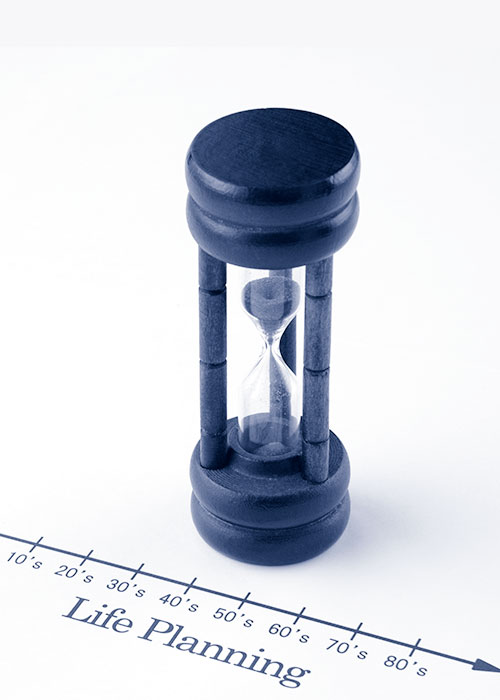The term estate planning can encompass a number of different legal instruments and concepts

Generally, estate planning can be broken into two distinct categories: (1) estate planning for physical and/or mental incapacity; and (2) estate planning for death.
Many people would rather do almost anything rather than sit down and establish their estate plan, even though they know they recognize the value of having one in place. When a person makes the decision to put an estate plan into place, they often find themselves confronted with a number of tough questions right at the outset. Who will administer my affairs and distribute my assets when I am no longer able to do it myself? Will the family business continue to provide for my loved ones after I am gone? Will a portion of my estate have to be used to pay taxes and if so how much?
What Should I Be Planning?
The durable power of attorney allows an individual to choose someone to manage their assets on their behalf if they are unable to do so for themselves. In Florida, the only allowable Power of Attorney is “immediate,” and the agent chosen will have the immediate ability to take care of the individual’s property and will remain in power even if the individual is later determined to be mentally incapacitated.
Prior to a 2011 change in the law, it was possible for a power of attorney to be drafted as deployment contingent or “springing.” In this circumstance, the agent chosen would not be able to manage the individual’s assets until after they have been determined to be mentally incompetent. Powers that were drafted as deployment contingent before the statutory change remain in effect under the new law.


The instruments described above are merely a small sampling of the options available to the knowledgeable estate planning attorney. Other issues, such as taxes, creditor’s claims, and the limitations of Florida homestead must also be considered. Failure to do so could cause serious problems for estate administration and may prevent friends and loved ones from receiving desperately needed bequests.
Unfortunately, websites that sell discount legal documents are unwilling to take responsibility for ensuring that their clients are made fully aware of everything they need to know before implementing their estate plan, ultimately leading to problems and confusion.
Our estate planning packages are constructed with value in mind and most of the legal work we perform for our clients is done at a set fee. This means that you don’t pay for each phone call or email and a simple follow-up is never followed by a bill.
Contact Us Today!
You may qualify for a FREE Consultation.
"*" indicates required fields
Get started by completing our Online Estate Planning Worksheet

